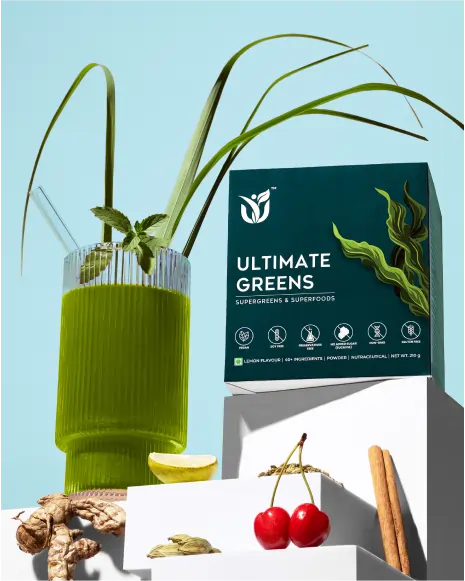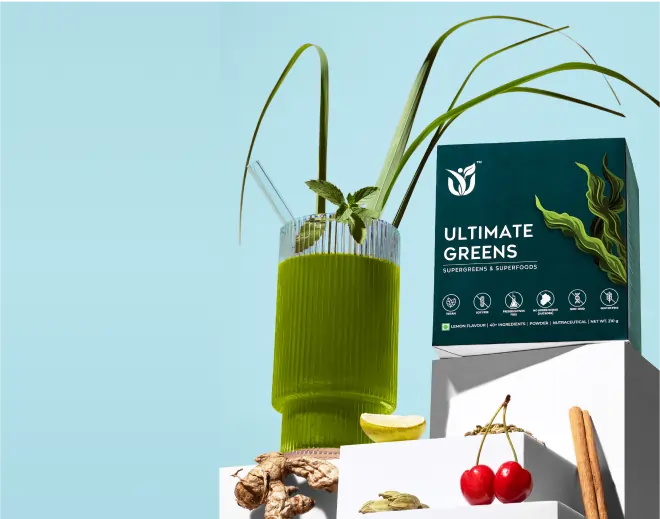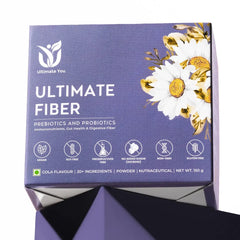Veganism is more than just a dietary choice – it's a movement that's rapidly transforming the way we eat and live. In fact, the vegan food market in India has been experiencing explosive growth.
According to IMARC, the Indian vegan food market reached $1,468.3 million in 2023 and is expected to reach $3,474.8 million by 2032, exhibiting a growth rate (CAGR) of 10.04% from 2024 to 2032.
This rapid rise isn't just a passing trend – it's a shift towards healthier living, environmental sustainability, and compassion for animals. People are discovering that adopting a vegan lifestyle can boost energy, prevent chronic diseases, and reduce their carbon footprint.
Not just that, a vegan diet can provide all the essential nutrients your body needs while offering a wealth of exciting, delicious foods to enjoy.
Ready to explore the vegan lifestyle? Read our complete guide for tips, meal plans, and resources, or contact us for personalized advice.
What is a Vegan Diet?
A vegan diet excludes all animal products, including meat, dairy, eggs, and honey, and focuses on plant-based foods like fruits, vegetables, grains, legumes, nuts, and seeds. Many people adopt a vegan diet for health, environmental, or ethical reasons.
If you're considering trying a vegan diet, you may wonder if it's the right fit for you. While there are significant benefits to going meatless, there are some challenges as well. With thoughtful planning, a vegan diet can provide all the essential nutrients for a healthy lifestyle.
The Do's of a Vegan Diet
1. Eat a Variety of Whole Foods
Variety is key in a healthy vegan diet. Include whole grains, legumes, vegetables, fruits, nuts, seeds, and plant-based fats to ensure balanced nutrition and keep meals exciting.
2. Focus on Plant-Based Protein Sources
Protein is vital for tissue repair. Include plant-based sources like beans, lentils, tofu, and quinoa. Combine different proteins, like beans and rice, for a complete amino acid profile.
3. Ensure Adequate Nutrient Intake
A vegan diet needs attention to key nutrients like B12, omega-3s, iron, and calcium. Include fortified foods or supplements for B12, omega-3s, and vitamin D, and consume vegan-friendly calcium sources.
4. Plan Balanced Meals
A balanced meal includes proteins, carbs, and fats. Fill half your plate with vegetables, a quarter with protein, and the rest with grains. You can even add healthy fats like avocado or olive oil.
5. Stay Hydrated
Water aids digestion, nutrient absorption, and toxin removal. Staying hydrated supports optimal body function, especially with a fiber-rich plant-based diet.
Herbal teas, coconut water, and plant-based milks are great alternatives to water, offering extra hydration and nutrients.
The Don’ts of a Vegan Diet
1. Avoid Processed Vegan Junk Food
Not all vegan products are healthy. Many processed vegan foods are high in sugars and unhealthy fats. Choose whole foods like fruits, veggies, and homemade meals for better health.
2. Don’t Overlook Vitamin B12
Vitamin B12 is essential for brain, nerve, and blood cell health. As it’s found in animal products, opt for fortified plant foods or a supplement.
3. Don’t Rely on Soy-Based Foods
Excessive soy intake can affect hormone levels. Balance your diet with other plant-based proteins like lentils, chickpeas, and beans, and limit processed soy products.
4. Avoid Skipping Meals or Relying on Snacks
Skipping meals can lead to energy dips and nutrient gaps. Eating a balanced diet with proteins, fats, and carbs, and include healthy snacks to maintain energy.
5. Don’t Forget About Mindful Eating
Mindful eating involves focusing on food's flavours, listening to hunger cues, and eating slowly to improve digestion and prevent overeating.
7 Tips To Make Your Vegan Diet Work
Plan your meals ahead to ensure you're getting all the nutrients you need. Prepare ingredients ahead of time to simplify cooking during the week.
Connect with like-minded individuals through social media, vegan groups, or local communities to share tips, recipes, and experiences.
Listen to your body and make dietary adjustments as necessary. If you’re feeling sluggish or low on energy, make sure to include more variety or supplements.
Consider B12, vitamin D, and omega-3s if you're not getting them through food.
Keep healthy, vegan snacks on hand for when you're hungry between meals.
Stay hydrated by drinking water throughout the day to maintain overall health.
Check food labels for hidden animal products or additives.
5 Common Mistakes To Avoid on a Vegan Diet
1) Ignoring your protein needs
Many people assume plant-based foods lack protein, but it's essential to include a variety of protein-rich options like legumes, tofu, tempeh, and quinoa.
2) Not getting enough fiber
While fruits and vegetables provide fiber, a balanced vegan diet should include whole grains, beans, and seeds to ensure you're getting enough fiber for digestion.
3) Missing out on healthy fats
Healthy fats are crucial for brain and heart health. Make sure to include sources like avocados, nuts, seeds, and olive oil in your meals.
4) Underestimating the importance of micronutrients
Vitamins such as B12, vitamin D, iron, and calcium are crucial on a vegan diet. Make sure to include fortified foods or take supplements if necessary.
5) Not being prepared for social situations
Dining out or attending social events can be challenging. To stay aligned with your diet, check restaurant options and bring along vegan-friendly snacks.
Conclusion
Staying consistent on your vegan journey is all about planning, variety, and listening to your body. Embrace the vegan lifestyle for long-term health benefits, and don’t hesitate to reach out if you need guidance. With proper planning, you can enjoy delicious, nutritious meals that support your well-being.
If you have any queries or need help with your vegan diet, feel free to reach out to us.
Disclaimer
The information provided is for educational purposes only and is not intended to be a substitute for medical treatment. If you're pregnant, nursing, taking medication, or have a medical condition, it's better to consult a healthcare professional. Ultimate You does not provide any guarantee regarding the accuracy, adequacy, completeness, legality, reliability, or usefulness of the information and disclaims any liability arising from it.








